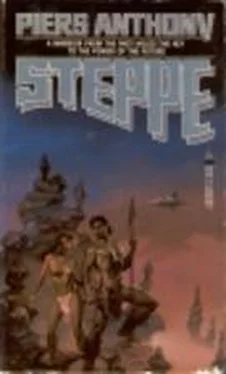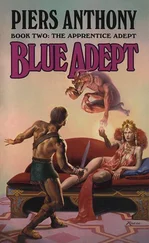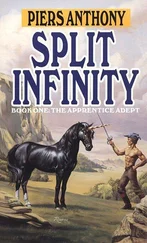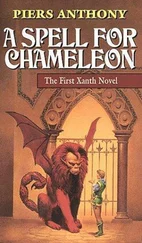Piers Anthony - Steppe
Здесь есть возможность читать онлайн «Piers Anthony - Steppe» весь текст электронной книги совершенно бесплатно (целиком полную версию без сокращений). В некоторых случаях можно слушать аудио, скачать через торрент в формате fb2 и присутствует краткое содержание. Жанр: Книги. Описание произведения, (предисловие) а так же отзывы посетителей доступны на портале библиотеки ЛибКат.
- Название:Steppe
- Автор:
- Жанр:
- Год:неизвестен
- ISBN:нет данных
- Рейтинг книги:5 / 5. Голосов: 1
-
Избранное:Добавить в избранное
- Отзывы:
-
Ваша оценка:
- 100
- 1
- 2
- 3
- 4
- 5
Steppe: краткое содержание, описание и аннотация
Предлагаем к чтению аннотацию, описание, краткое содержание или предисловие (зависит от того, что написал сам автор книги «Steppe»). Если вы не нашли необходимую информацию о книге — напишите в комментариях, мы постараемся отыскать её.
Steppe — читать онлайн бесплатно полную книгу (весь текст) целиком
Ниже представлен текст книги, разбитый по страницам. Система сохранения места последней прочитанной страницы, позволяет с удобством читать онлайн бесплатно книгу «Steppe», без необходимости каждый раз заново искать на чём Вы остановились. Поставьте закладку, и сможете в любой момент перейти на страницу, на которой закончили чтение.
Интервал:
Закладка:
"Your peak spread of 1,029-395 was achieved during your dialogue with Kokachin; this fell off sharply when she left the Game."
"Why? What did they expect?" That episode still hurt; Alp had held himself aloof from emotional concerns of the male-female type but had been vulnerable to that childish innocence.
"Spectators are notably lascivious in their tastes."
"A nine-year-old girl? She would not be marriageable for three or four years."
"Many things happen in the course of the Games that would not be legitimate in normal society, though the Galactic is more liberal than that you have known."
Something about that statement alarmed him, so Alp smiled disarmingly. "Because they think of it as a primitive situation... and don't realize they're being watched..." Then something else occurred to him. "If people are watching all the time—you must be watching too. To put them in touch."
"The Game Machine necessarily keeps track of all players," it agreed.
"Then you know—" Alp halted. Did it know about the document?
"The Game Machine maintains a complete record."
"Then why didn't you stop—?"
"The Game Machine does not interfere with individual parts so long as they are played within specification and no complaints are lodged."
Which was one difference between Machine and man! "None of the spectators complained?"
"None. They appreciate illicit excitement of any type. Your spread had a secondary peak at the time you appear to be considering of 988-450—an unusual ratio."
Interesting the way the Machine never referred to itself as "I" or jumped to a conclusion. It seemed truly neutral. Meanwhile, Alp found he understood the ratio. It meant that about one of every two people who surveyed him in that period stayed to watch steadily, skipping meals and sleep if need be. Complain? Not if that meant the termination of their vicarious lawbreaking! He had known the type in life...
"But the police," he said. "Why didn't they catch me when they had the chance?"
"Cross references between citizens and players are not routinely provided by the Game Machine, as this is deemed a legal invasion of privacy. The police were not at that time aware of your identity."
Invasion of privacy! Galactics didn't seem to mind having their most intimate personal acts in the Game exposed to public view... yet balked at having their Galactic identities known. What a demonic set of values!
Alp shook his head. Neither Machine nor Galactic logic was his own—but he suspected that the Game Machine was tacitly collaborating as much as those spectators who had known he was breaking the rules, yet concealed that fact from the authorities. Why should the Machine assist him in such indirect yet effective manner?
He decided not to ask.
Chapter 13
TEMUJIN
Alp entered a minor Khitan part, reserving most of his credit for future emergencies. No sign of Khitan dominance appeared, and there were no characters named Jenghiz or Tata-tunga. He lost track of Uga and Pei-li; as the Machine had explained, cross-references were not routinely provided, and the scope of the Game was wide.
The role terminated in 890 with a small positive balance, bringing Alp's cumulative score to 758 points. He entered another Khitan part—but the Khitans remained unimportant, and when it ended in 915 he had taken a loss, reducing his total to only 321 points. Still it was the barbarian Kirghiz, not the Khitan, who controlled the old Uigur territory. The higher standard of living the Uigurs had sponsored was now regressing, and more barbarians were filling in. Despairingly, Alp invested once more in the Khitans, spending the last of his credit for a soldier's role: in war there could be quick promotion—or quicker death.
T'ang had had his day. He lost his head about Day 900 and was ill. But the small giant Khitan now expanded into the power-vacuum. After 920 he drove Kirghiz back into the northern range and kept expanding.
Alp, a general in the conquering Khitan army, retired from his part in 950 with 1514 points. Several following good Khitan parts brought his total to over 5,000 points. But where was Jenghiz?
Then the current Chinese giant, Sung, made a deal with the barbarian Jurchid, of the Tungus family of nomads, and together they destroyed Khitan about 1123.
The historic document had betrayed him: the Khitans had dominated Steppe for two centuries but had never produced an extraordinary conqueror. Civilized and soft, as the Uigurs had been, they fell to intrigue and barbarism. Alp took a loss, and knew that Uga and Pei-li had suffered similarly.
Alp took two Sung parts, merely hanging on to his points while watching the situation. At length a new barbarian nomad began making motion: another Mongol.
The document had been genuine; Alp was sure of that. And the Game Machine was keeping history in line. Alp considered the situation again—and realized belatedly that though the Khitans were of the Mongol family, and that Jenghiz Qan was listed as a Mongol, he was not necessarily a Khitan. There were other, if minor, Mongol tribes in Steppe—and these were the same that were now joining the general stir to the north.
Should he take another safe Sung part—or gamble again among the nomads? His mind urged the safe course—but his blood prevailed. Maybe he was misreading conditions—but this could be the situation he had been searching for all these centuries.
"Your choice of tribe?" the voice of the Game Machine inquired.
"Mongol," Alp said. "Chief level."
"Few parts of that specification are currently available," the Machine said. "If you will consider a chief in one of the related nations—Naiman, Kerayit, Markit—"
"No. Only Mongol."
"One thousand points entry fee."
"Subtract it from my account."
"As you wish." The Machine listed several Mongol chiefs for the Game year 1175. None were named Jenghiz.
Alp flexed his muscles restlessly. "I will wait," he said at last.
The booth became silent as the Machine's presence left. The Machine did not need to inform him that he had forfeited his entrance fee by declining all offerings. This was now a necessary expense. Alp still had a little over two thousand points. If the Jenghiz part did not open up soon, he would have to take something else. His nomad feel for power told him that this was his chance to land a really major part, and so he was gambling everything on that. He could wait up to five days before finally deciding; then he would have to take a part, or leave the Game entirely.
How was Uga doing? The two had met now and again in the course of the Khitan history, with Uga generally doing better because of his ability to buy superior parts. Was Uga also now waiting in a booth for Jenghiz to appear?
Alp sat it out as long as he could bear—three days—then made a second application. Game time was now 1178.
As he entered the booth, he had a bright notion. "I should like to consider Mongol chiefs and Uigur scholars," he said.
The Machine accepted his fee and displayed a wide range of Uigur scholars. They were in small demand because of the prevailing illiteracy, so their entry fee was smaller—but he had to pay the full chief fee if he wanted to look at both. This was cheaper than paying two separate fees to check them one at a time, since he didn't really want a Uigur part.
There were over a hundred identities available. Alp checked each doggedly and paid close attention to each description. And suddenly he found it: Tata-tunga!
Now he was certain this was the age of Jenghiz Qan. Jenghiz and Tata-tunga were contemporaries. His heart pounding, he asked to see the Mongols.
They were now reduced to two; other players had snapped up the others, and new ones had not developed apace. Experienced Game players were quick to note new trends, and there was a lot of potential in the new Mongols should they ever become unified.
Читать дальшеИнтервал:
Закладка:
Похожие книги на «Steppe»
Представляем Вашему вниманию похожие книги на «Steppe» списком для выбора. Мы отобрали схожую по названию и смыслу литературу в надежде предоставить читателям больше вариантов отыскать новые, интересные, ещё непрочитанные произведения.
Обсуждение, отзывы о книге «Steppe» и просто собственные мнения читателей. Оставьте ваши комментарии, напишите, что Вы думаете о произведении, его смысле или главных героях. Укажите что конкретно понравилось, а что нет, и почему Вы так считаете.











